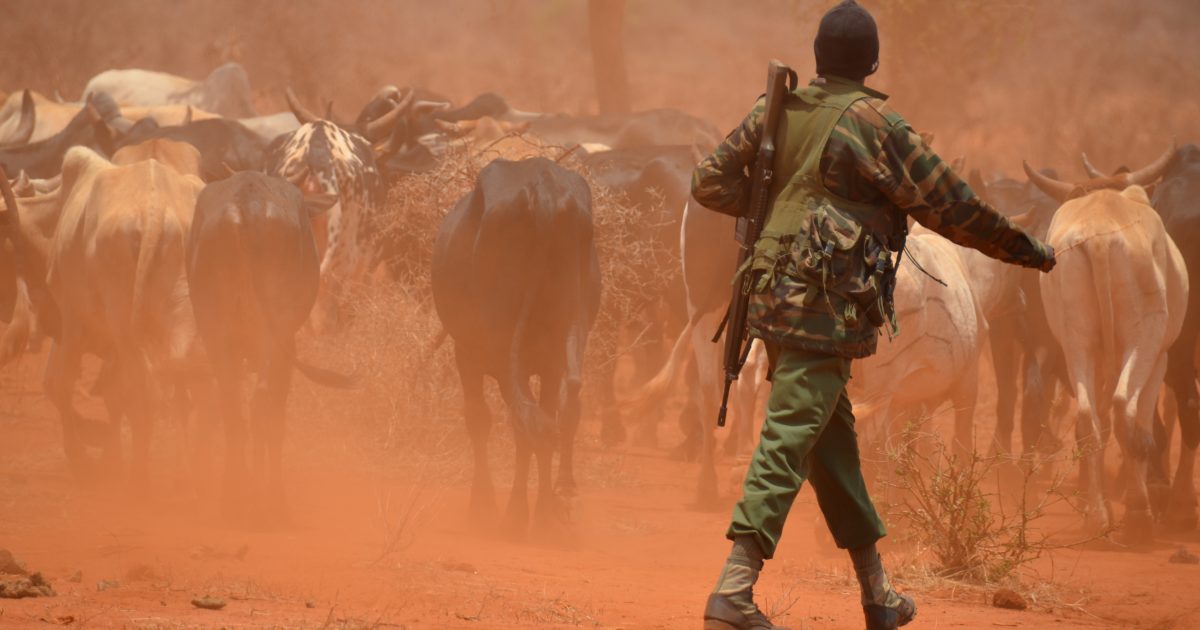Taita-Taveta County government has imposed a ban on all livestock movement in and out of the county following an outbreak of Foot and Mouth Disease.
The disease which was initially reported in early February at Mgeno Grazers in Mwatate has now spread to other sub-counties of Voi and Wundanyi prompting a county ban on animal movements even as veterinary officers rush to curb the deadly spread.
County Executive Committee Member (CECM) for Livestock and Agriculture Mr. Davis Mwangoma said that over 800 cattle have been affected by the outbreak. No animal fatality has been reported so far.
The county had deployed veterinary officers to the affected farms for treatment and monitoring even as farmers are advised on interim remedies including use of sodium bicarbonate, isolation of the sick animals and minimizing movements.
“Officers have visited the affected farms and administered antibiotics. We have stopped all movements of animals to avoid further spread of this disease,” he said.
Initially, the disease was first reported in scattered farms in Mgeno, Mto Mwagoti and Kamutonga villages in Mwatate but rapidly spread to Mwashoti, Godoma and Msorongo villages over 30km away.
By the end of February, the disease was reported in areas of lower Sagalla including Talio Nyika, Marapu and Zongwani villages.
By last week, livestock farmers in Wanjala areas in Kishushe, Wundanyi had reported cases of cattle suffering from the disease. There are fears the disease is spreading deeper in the rural village further complicating efforts by veterinary officers to combat it.
The livestock department initially imposed a ban on animal movement in Mwatate sub-county only to include the whole county soon after. Only the border sub-county of Taveta has not reported any FMD case.
Speaking to KNA Monday, Mr. Mcharo Bon’gosa, the chair of Taita-Taveta Wildlife Conservancies Association that comprises 29 ranches, termed the disease situation as precarious.
He disclosed that ranchers had intensified vigilance and were working closely with the county government to curb the spread of the disease.
Mr. Bon’gosa noted that the origin of the disease was suspected to be illegal herds that had clandestinely sneaked into the region from outside without proper inspection, adding that such herds were often driven into Tsavo National Park to graze illegally.
He noted that the banning of movement and aggressive move to flush out all illegal herders by the county enforcement team and national government security agencies offered hope of the disease being conquered. “This disease was imported by the disease-laden herds that come into the parks through the SGR corridors,” he said.
Taita Taveta County is classified as Disease-Free Zone and a favorite region for livestock exporters who use the ranches in the region to fatten their animals before exports. However, such unexpected disease outbreaks place the Disease-Free status at risk.
According to the 2019 census, the county has slightly over 114,000 herds of cattle. The number of sheep and goats is 46,000 and 202,000 respectively.
The Veterinary Directorate has announced plans to roll out an emergency vaccination campaign once the vaccines are delivered from Kenya Veterinary Vaccines Production Institute in Nairobi.
By Wagema Mwangi




